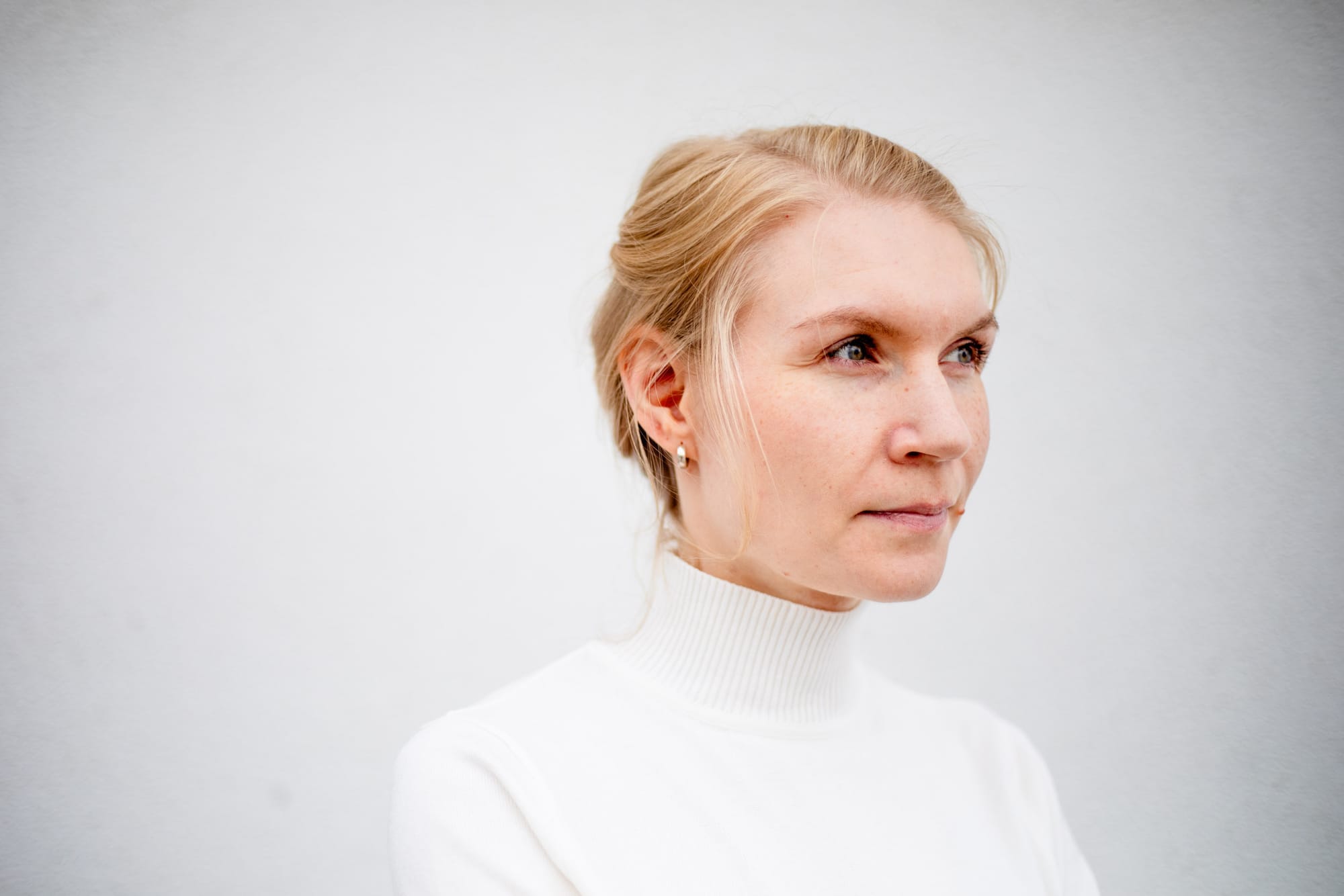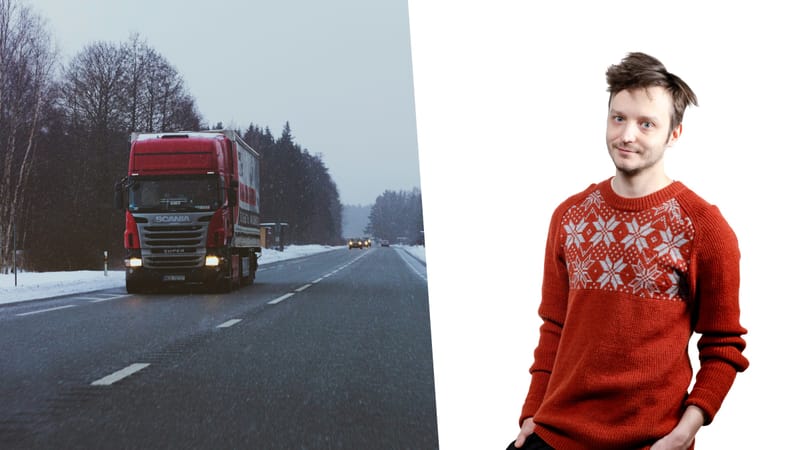What if our legal system listened to nature too?
Funded by the Kone Foundation, the new law office Maailma seeks to shift how we think about the relationship between people and nature. Legal texts praise environmental values, but in court they are mostly laughed at, says lawyer Tuuli Talvinko.

By Kalle Pusa
On a train to Paris, legal scholar Tuuli Talvinko realized she could, as a lawyer, do something to help prevent ecological catastrophe.
She was returning from Durham University, where she had attended a conference on critical legal studies exploring what the law of the future might look like.
“In legal academia, the relationship between humans and nature has long been debated. Using the law to promote a sustainable world is not a fringe discussion – it’s at the very core of modern legal science,” Talvinko says.
Having worked as a trial lawyer before beginning her doctorate, Talvinko realized that this thinking also had to be brought into practice. Academia had already acknowledged that the conflict between economic growth and sustainability must be solved, but in her view, court practice was lagging behind.
Now, four years later, Talvinko is establishing Finland’s first law office specializing in strategic environmental and climate litigation – bringing that conflict, and its possible solutions, into Finnish courtrooms.
The Kone Foundation is funding the law office Maailma (=Globe) with €1.4 million.
A new legal paradigm shift focuses on nature
The new office aims to change legal paradigms – that is, the underlying frameworks that guide legislation and its interpretation.
These paradigms are not just abstract concepts. They determine whose rights and interests the system protects and what kinds of behavior it discourages. They shape both lawmaking and law enforcement.
According to Talvinko, a major paradigm shift is now underway in Western legal thought. A system long centered on humans – and especially on the economy – is beginning to take the environment, animals and the climate into account.
But in actual court rulings, this shift is not yet reflected.
“Even though academia understands what a sustainable world would require, this hasn’t yet made its way into the decisions of courts,” she says.
Talvinko has already witnessed the clash between new thinking and old structures. She has defended numerous environmental activists, including members of Elokapina (Extinction Rebellion Finland), and believes litigation can drive broader change in legal thinking.
“Parliament should in principle take the lead, but it has lagged badly behind. It has been clear since the 1970s that something must be done to prevent ecological catastrophe, but policymakers, tied to the myth of endless growth, have failed to act,” she says.
Although Finland has recently passed new climate and environmental laws, Talvinko argues these are not enough.
“Legal texts may praise environmental values, but in actual court cases they are often laughed at.”
She believes more sustainable legal thinking won’t emerge without active promotion, and that individual lawyers have a duty to lead the way.
“We received our education free of charge from society. With it, we should help build new, more sustainable systems.”
The clash between economy and environment
At the heart of this paradigm shift is recognizing the conflict between economic activity and nature, and creating a legal system that can resolve it. This means giving weight to legal arguments grounded in ecology and sustainability.
“That’s what our office will focus on. Just as labor law once highlighted the conflict between capital and workers, we are now highlighting the conflict between capital and ecological sustainability,” Talvinko explains.
Such shifts are not unusual, she notes. Finnish legal thinking itself has changed dramatically over time.
Her professor once recalled that before the 1990s, appeals to human rights were ridiculed: “It was said that if you had to rely on human rights, you had already lost your case.”
But Finland’s legal paradigm shifted sharply in the 1990s as the country integrated more closely into Europe, signing the European Convention on Human Rights in 1990 and joining the EU in 1995. A new constitution followed, embedding principles once considered radical.
“Today, human and fundamental rights are the very basis of legal proceedings.”
What foundation funding makes possible
The new office is not about legal aid for individuals but about strategic litigation. It will choose cases carefully, aiming to influence legal thinking through high-impact trials.
“We try to look beyond single cases and use litigation to shift thinking more broadly. We select major cases where the conflict between economic interests and environmental values is so stark that the court must address it. The societal weight of a case will be a key criterion,” Talvinko says.
The office will focus on issues particularly relevant to Finland, such as mining and forestry, with potential conflicts especially in Lapland. It will include two practices: one handling environmental lawsuits, and another led by Talvinko focusing on defending environmental activism.
Unlike most law firms, Maailma will not bill its clients. Thanks to foundation funding, costs will be a fraction of what traditional firms charge.
“Environmental NGOs rarely have enough money for complex lawsuits. And even when they do, funds quickly disappear when paying for private-sector legal services,” Talvinko explains.
That means the firm must be highly selective, since demand is already overwhelming.
Beyond affordable litigation, Talvinko hopes the office can also pioneer creative approaches:
“We want to move from reactive to proactive. Not just waiting for cases, but actively looking for them.”
Systematic change is both possible and inevitable
Climate change is the defining conflict of our time, Talvinko stresses.
“We can either begin a controlled transition, or face total disaster.”
She is hopeful, believing the legal system can change. Still, no single law office can save the world.
“This isn’t about one big victory. There won’t be a single ruling that throws confetti in the air and declares climate change solved. It’s about systematic change, which takes time – but it’s both possible and inevitable.”
The office’s task, she says, is to slow the destruction caused by the current system until society can no longer deny the need for strong action.
“In a way, we’re buying time – time for even the slowest in the class to grasp what’s really at stake.”
Activism takes many forms, from street blockades to protest marches to direct action at oil company headquarters. Talvinko sees herself as relatively conservative among them.
“I want to work within the system and try to make sure we have the right conversation.”
But that conversation is urgent. Otherwise, the conflict may inevitably escalate toward violence – just as unresolved struggles between capital and labor fueled bloodshed in the last century.
“I don’t believe in tearing down organized society. I believe in achieving sustainable change. And a new world could truly be better and happier for all of us,” she says.
“But the journey must begin now.”





